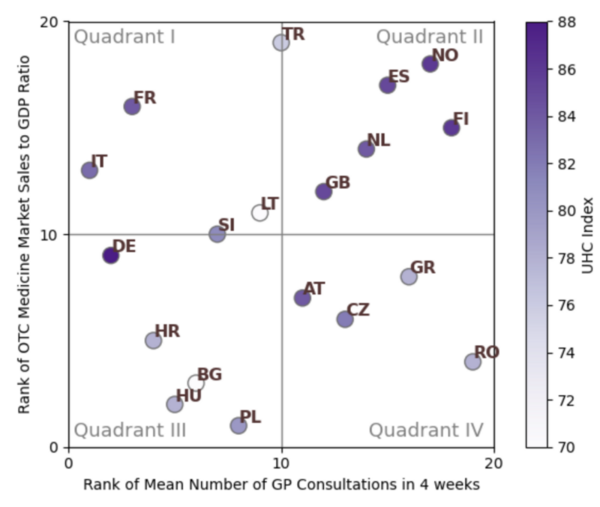Country-level relationship of OTC medicine consumption and frequency of GP consultation
(1) Senzoku Gakuen Junior & Senior High School
https://doi.org/10.59720/24-002
The discussion surrounding self-medication with non-prescription medicines has gained significance in healthcare and public health, particularly given the global increase in consumption of non-prescription drugs. Currently, there is a lack of evidence regarding the relationship between people’s propensity to seek medical consultation and consumption of over-the-counter (OTC) medicines. This study aimed to examine the association between the frequency of general practitioner (GP) consultations and the proportion of economic resources spent on OTC medicine. We conducted a correlation analysis between the mean number of GP consultations in a 4-week period and the ratio of non-prescription medicine market sales per capita to GDP per capita of 19 European countries. Additionally, universal health coverage (UHC) service coverage indices were used to contextualize healthcare provision in each country. Based on past studies, we hypothesized that GP consultations would negatively correlate with consumption of OTC medicine. We found a weakly positive Spearman's rank correlation coefficient, although this result was not statistically significant (rs = 0.22, p = 0.37). The lack of statistically significant correlation may reflect differences in characteristics of health care provision across countries. Overall, this study points out the importance of considering diverse aspects of a country's healthcare landscape in making country-level comparisons to support healthcare policy.
This article has been tagged with: